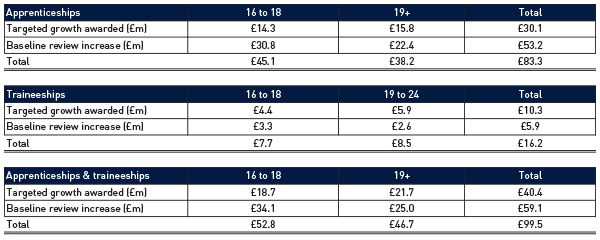Matt Atkinson, the current principal of Bath College, is to join the board of FE and skills solutions specialist FEA as joint managing director, when he leaves the college at the end of August.
A spokesperson for FEA said Mr Atkinson will work alongside the other managing director, David Sykes, to lead the organisation’s consultancy support services for colleges and providers undergoing structural change.
Mr Atkinson has spent the past nine years at Bath College after joining from Andover College, where he was acting-principal, in 2007.
He said his experience in the sector “coupled with my experience of leading major change programmes in colleges” will provide “value to college leadership teams in these very challenging times”.
Mr Sykes said: “Matt’s recent frontline experience of mergers and quality improvement in FE will provide beneficial insight, backed up with practical implementation, which perfectly complements our existing team.”
Kingston Maurward College in Dorset has appointed Luke Rake as its new principal from August.
He will take up the role following the retirement of Clare Davison.
Jim Tirrell, the college’s chair of governors, said: “Clare Davison has done such an outstanding job at managing the college over the last seven years.
“Luke comes from a background in FE, including successful experience of senior management in a high performing land-based college. Governors are therefore confident that the college will continue to prosper and grow under his stewardship.”
Mr Rake has held the positions first of deputy principal and then of vice-principal at Hartpury College in Gloucester since 2007.
He has also held roles as head of sixth form at Chalfonts Community College in Buckinghamshire and head of enrichment and learning support at The Henley College.
Meanwhile, Phil Hall has been appointed head of public affairs and policy at the charity skills learning provider, the Association of Accounting Technicians (AAT).
Mr Hall previously worked as head of media and public affairs at IFS University College, where he says he played a “key role” in the “rapid expansion” of their personal finance GCSE and A-level equivalent qualifications.
Of his new position, Mr Hall said: “Thousands of FE students are studying AAT qualifications and will go on to have successful careers in a wide variety of roles, whether offering accountancy services to individuals, third sector organisations or the full range of business types from small- and medium-sized businesses to multinational corporations.
“It’s important for the economy, for local communities and individuals that this continues, and so I’ll be doing my utmost to make the case for vocational education of this kind.”
And in a whirlwind week for the Labour party following the shock EU referendum result, Lucy Powell resigned as shadow education secretary and was replaced by Pat Glass, only for her to then resign just two days after being appointed to post.
Ms Glass, the MP for North West Durham, was appointed to succeed Ms Powell on Monday following her resignation over the weekend.
But after announcing on Tuesday that she would quit Parliament at the next general election, Ms Glass said on Wednesday that she was also quitting her “dream job” in the shadow cabinet.
“It is with a heavy heart that I have today resigned as Shadow SoS Education. My dream job but the situation is untenable,” she tweeted on the day.




